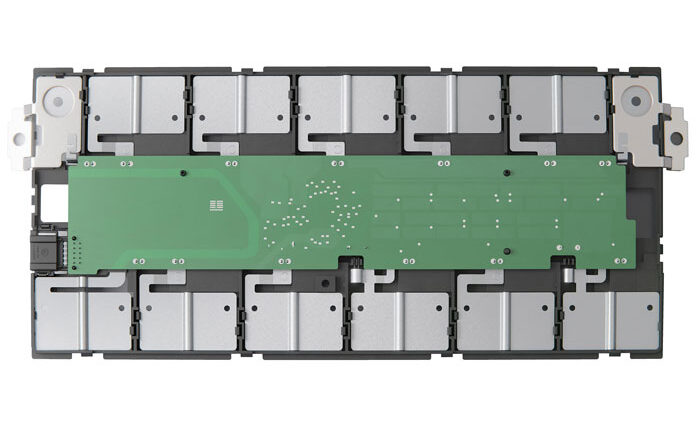Cell Module Controller from Marquardt Optimizes Battery Power and Protects Against Failures
Batteries are at the heart of every electric vehicle. With its battery management systems, Marquardt ensures that they operate reliably for a long time. A milestone in the development of these systems is the new Cell Module Controller (CMC), which Marquardt is presenting at the Battery Show in Stuttgart. The CMC monitors each individual battery cell in real time. The master control unit can thus process data to optimize battery performance and protect against failure. In addition to mobile applications, the CMC can also be used in stationary energy systems.
Cell Monitoring and Control in Real Time
Imbalances such as deep discharge, overcharging and temperature peaks are important parameters that need to be monitored in lithium-ion batteries to ensure safety. The CMC controls this by monitoring each individual cell and providing important data on the condition and performance of the battery. In the event of problems, the controller informs the master control unit, which in turn decides what to do: charge, cool down or rebalance. The balancing is necessary, for example, if some of the hundreds of cells that make up a battery are not fully charged. This leads to imbalances and the uniform cell voltage in the battery pack is lost. Such scenarios are prevented by real-time control and monitoring. The CMC optimizes the operating status, protects against overcharging and overheating and increases the safety and longevity of the battery. The control unit thus reduces the likelihood of battery failure and prevents the high costs associated with replacement. In the long term, this results in considerable savings potential.

Scalable and Easy to Integrate
The Cell Module Controller from Marquardt is compatible with a wide range of battery chemistries and form factors. Analog front ends (AFE) without software dependencies serve as a communication interface to other electronic control units (ECUs) in the system, making the CMC versatile and easy to integrate. The CMC therefore offers maximum flexibility for car, truck and cell manufacturers. In addition to the automotive sector, it is also suitable for integration into stationary battery systems. The design is scalable and is constantly being updated to meet evolving industry standards and customer requirements. For example, Marquardt is working on wireless variants of the Cell Module Controllers that aim to improve the adaptability and installation efficiency of the system and offer even greater flexibility and ease of use in various applications.
The new Cell Module Controller is available now. Marquardt will be providing further information at the Battery Show from June 18 to 20 in Stuttgart.


